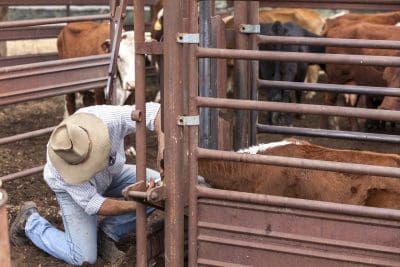 Shane Kilby, a cattle producer from Dubbo, will take the issue to the NSW Farmers Annual Conference next week.
Shane Kilby, a cattle producer from Dubbo, will take the issue to the NSW Farmers Annual Conference next week.
“As a livestock producer it’s vital to have a good relationship with a large animal veterinary practice so you can get the care you need, when you need it,” Mrs Kilby said.
“Vets are indispensable for us, whether it’s pregnancy testing, calving or even just looking in on a sick animal.
“Sadly we’re seeing a decline in the number of large animal vets across the state and while those that are around do their best to fit you in, we can’t let the numbers continue to slip.”
While the number of registered vets had increased on average by 3 per cent each year, they were overwhelmingly moving into small animal practice as pet ownership increased.
Mrs Kilby said a motion from the NSW Farmers Dubbo Branch to the Annual Conference would call for investment in a range of measures such as financial incentives to get vets into western NSW, ongoing tax incentives for vets to work in rural areas, and more training places targeting large animal vets training places.
“If we could get the same sort of HECS forgiveness for vets that teachers, doctors and nurses can access, we might get more vets into western NSW,” Mrs Kilby said.
“We would also like to see increased migration of skilled vets to plug the gaps in the short term, and really do more to train more vets for the future, maybe by reviewing the selection criteria for entry into veterinary science.”
